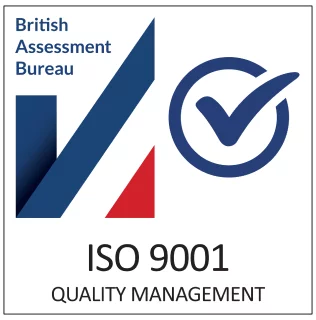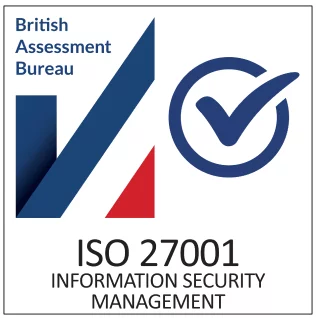Joomla, which launched in 2005, is only two years younger than WordPress. Since then, Joomla has maintained the second-place crown behind WordPress, boasting a customisable, open-source framework.
While similarities are often drawn between the two CMS platforms, the differences between Joomla and WordPress are stark. Below, we flex our agency knowledge to analyse which system will work for you, as well as breaking down the SEO, security, speed and UX advantages of each.
The Core Differences Between Joomla and WordPress
While WordPress and Joomla can run pretty much any type of website nowadays, both had distinct differences on inception. Joomla was designed with portal-like websites in mind, while WordPress was initially designed with blogs as its priority.
Even though both platforms have changed significantly since then, Joomla has maintained its reputation for requiring a bit more tech expertise and server knowledge to make the most of it. WordPress, on the other hand, has consistently stood out for its ease of use.
This core difference in development philosophy is explicitly seen when setting up either platform.
Joomla vs WordPress: Ease of use
When setting up WordPress, users will broadly follow this four-step framework:
- Choose a web host
- Choose the WordPress option when registering with the host
- Complete the hosting process and establish a WordPress dashboard
- Clean up the site with plug-ins, themes, quality-of-life changes, etc.
While WordPress has depth which rivals Joomla, it is much easier to set up. Joomla’s set up, on the other hand, requires more work from the user. There are no custom installation pathways, which equates to the user doing most of the install legwork on their own.
Having this extra flexibility may be attractive to some users though, so being more complicated on set up isn’t necessarily a negative.
Joomla vs WordPress: Security
WordPress is the widest used CMS in the world and, as such, hackers of various skill levels want to take it down. By posing a challenge for hackers, it’s sort of the big white whale of CMS platforms – lots of people want to take it down. As such, WordPress has a history of exploits, but overall, considering its size, the platform has done admirably well to contain and learn from these.
Many of these exploits come from WordPress’s plugins, which need to be regularly updated to maintain security. Ensuring all of a site’s plugins are up to date and compatible with the newest version of WordPress needs to be adhered to or else a site becomes prone to attack.
Alongside the need to maintain these plug-ins, key security features such as two-step authentication and SSL require plugins instead of shipping directly with the WordPress platform. This is where hiring an agency like us can help, ensuring your WordPress site is maintained, up to date and all plugins are secure and watertight.
Comparatively, Joomla launches with the ability to have connections over SSL or 2FA. The system also has its own security extensions and developers regularly update and note extensions with vulnerabilities. Speaking strictly out of the box, Joomla is the more secure option, but WordPress simply needs a bit of maintenance to keep it totally safe.
Joomla vs WordPress: Speed
Speed is largely dependent on the number of pages on the site, volume of plugins, the size of images and the general state of the site. Straight after setup, WordPress is faster than Joomla.
Joomla can be sped up with developmental upgrades, plugins and other refinements, but its code is more difficult to handle for a beginner compared to WordPress. WordPress can slow down significantly if incorrect plugins are installed or if existing plugins are poorly optimised.
Overall, WordPress stands out as the easier-to-use option not just for its straightforward customisation, but for how impeccably fast the platform is immediately after install.
Joomla vs WordPress: Mobile
Mobile now makes up the majority of searches worldwide, so a CMS needs to run well on both desktop and mobile devices. With responsive themes, a WordPress website can mould itself to different devices and screen resolutions without sacrificing user experience. Having a responsive theme is essential for preserving branding and quality across devices; themes may seem small, but they convey strong brand messages. Running alongside this, all a user has to do is ensure plugins are mobile friendly.
Images can be a major headache when converting a site to mobile. Thankfully, WordPress automatically loads the smallest possible image via a HTML attribute, removing the need for finicky editing for users.
Joomla isn’t bad on mobile either, but it follows the similar trend where it needs the user to be more hands-on than in WordPress. Users will need to find, install and optimise themes, images and templates themselves, as well as testing and double-checking plugin compatibility. Overall, both sites can run well on mobile, but WordPress gets up to modern standards much faster.
Joomla vs WordPress: SEO
With Yoast, WordPress can easily streamline complicated aspects of SEO into easily-understood segments. Not only is it an excellent way to review the SEO quality of the page, it teaches the fundamentals of the practice efficiently. Users are not only applying fixes, but also educating themselves to reduce problems in future. The traffic light feature is easily understood, with bonus features commenting on the quality of writing from a readability standpoint.
Joomla has similar plugins, but none rival Yoast in terms of accessibility and functionality. The system does come with an easy-to-use template for meta descriptions and meta keywords, but WordPress still edges out in terms of SEO potential.
WordPress also features tags, which is not available on Joomla without the use of a plugin. There is an option to fully-optimise permalink structures and mass-edit meta data for a variety of pages. That way, novices in SEO can get up to speed even faster, as well as optimise their whole website efficiently.
Generally, WordPress sites rank higher than their counterparts. WordPress is constantly updated, meaning it always moves in line with Google’s best practices. When you factor in the potential of SEO plugins, then WordPress is a no-brainer for those who take SEO seriously.
Joomla vs WordPress: Pros and Cons
At their core, Joomla and WordPress have a few defining selling points. Joomla is suitable for those who want a system that is highly customisable, giving developers or hobbyists a wide canvas to express themselves. WordPress offers a system that is easier to use and update, along with boasting a wide array of plugins and a simply staggering pace.
Simply put, while Joomla may be a good choice for some people, it doesn’t compare to the scale of usability, access, speed, customisation and sheer potential of the WordPress platform. WordPress dominates the CMS market for a reason; it blends ease of access with space for long-term growth. WordPress is for everyone, which is why we love it.
Illustrate Digital, as a creative WordPress agency, know how to make the most of the platform for your business. From UX design and development to plugin development and auditing, we can help your site reach its fullest potential with WordPress.











